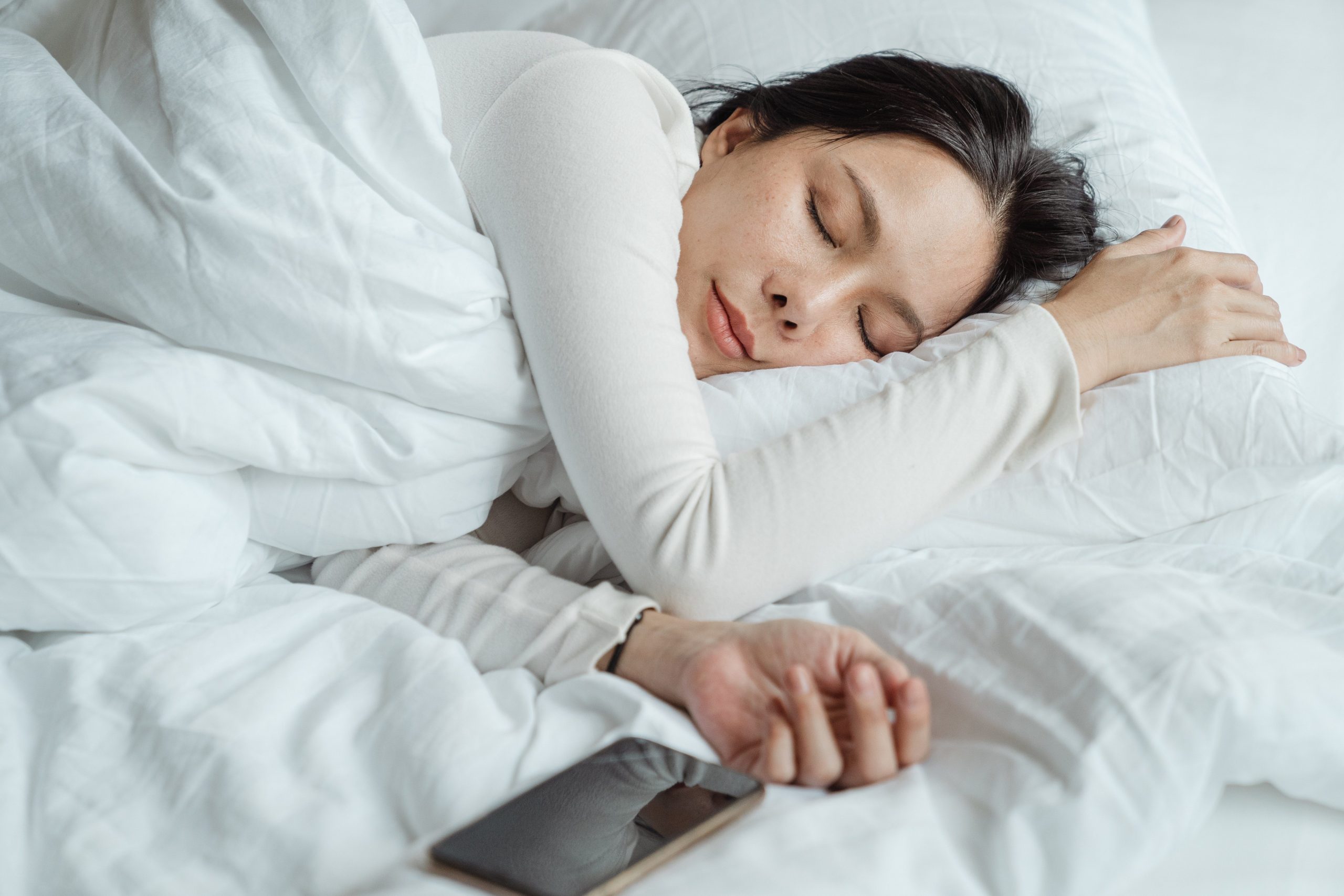Need some better sleep? Your phone has a solution for that.
Smartphones have long been blamed for harming the quality and duration of our sleep, and for good reason. Blue light emitted from screens suppresses melatonin, which makes it harder to sleep.
Let’s not get started on the constant notifications that keep us on high alert and use of addictive apps before sleeping.
That being said, we can use our smartphones to help improve our sleep habits.
Experts previously advised against using screens entirely for a few hours before sleeping. Now, as more and more people use their phones until the final minutes before sleep, this advice has become unrealistic.
We’ve gathered some apps, tips and tools to help you sleep better using your smartphone. Since we can’t give our phones up completely, we may as well use them for good.
Listen to sleep stories to fall asleep
One of the most effective ways to fall asleep is by relaxing your mind. This can be achieved by listening to sleep stories or even meditating before going to bed. A few apps are available that feature great collections sleep stories that would surely be more effective than counting sheep.
One of those apps is Headspace. The popular mediation app offers a sleep casts category featuring stories that can help you on your fight to get some rest. As described on the Headspace website:
“The mind isn’t always ready for bed when the body is. Even once we’re under the covers, our minds may still need time to wind down. That’s where sleep casts come in.”

Calm, the award-winning meditation app, also offers a wide range of sleep stories that can help you fall asleep in just a few minutes.
Sleep stories have been proven to be effective as they help relax restless minds at night. Therefore, you’re likely to fall asleep quicker as a result of listening to them. There are many apps with sleep stories available on smartphones, but we recommend using either Headspace or Calm. Both apps are available on the iOS and Google Play stores for free, with subscriptions to unlock more content.
Read also: Here’s what’s up with WhatsApp’s recent privacy changes – and how to get away from the app
Play white noise to improve the quality of your sleep
Playing white noise is a great way to improve the quality of your sleep. White noise is effective because it blocks out disturbing sounds and creates a consistent audio environment. This helps us fall asleep better as it gives our restless minds a constant sound to focus on. Blocking out disturbing sounds can also prevent you from randomly waking up due to the sounds of cars and construction outside your house – and we know this is all too familiar in Qatar.
During summer, most of us have our AC’s on while we sleep, providing us with consistent white noise. During these winter days though, you may find yourself at unease with the silence before falling asleep. This is when white noise comes into play.
Once again, many apps play a variety of white noise sounds. From aeroplanes to washing machines, almost all sounds imaginable are covered by an app.

After testing many of these apps, we recommend Deep Sleep Sounds for its large variety of calming sounds, as well as other features that let you fine-tune your white noise experience. The app is available for free both on iOS and Android. A premium version is available, but we recommend using the free one as it offers almost the same experience.
For those looking to spend some money into a white noise app, Dark Noise is a beautiful alternative to Deep Sleep Sounds. However, it costs $5.99 and is only available on the iPhone.
Adjust your phone’s settings
There are a few settings you can configure on your phone to help improve the quality of your sleep.

We recommend using your phone’s Screen Time (Digital Wellbeing on Android) settings to limit the usage of certain apps during bedtime. Reading the news (even Doha News!), scrolling through social media and playing games can keep you awake for longer than you plan to.
You should also enable Night Shift (Night Light on Android) as you approach your bedtime. Blue lights emitted from screens have a deep effect on our sleep, so it’s best to dim them before sleeping. Most phones offer the option to dim their blue lights at a scheduled time. You should set this up to dim your phone’s blue light a few hours before going to bed.
Changing your phone’s screen to greyscale mode may also help you sleep better. While we aren’t yet sure if switching to greyscale mode effects sleep quality, some people report that they use their phones a lot less as a result. It may be an extreme solution, but feel free to give it a shot.
These are our tips on how you can use technology to improve, rather than weaken, the quality of your sleep. Remember, that one of the best ways to sleep better is to stick to a consistent routine. If you combine our tips with a strict sleep cycle then, well, you can say goodnight to all your sleep troubles.
Do you have difficulty falling asleep? What helps you sleep better? Let us know in the comments.
Follow Doha News on Twitter, Instagram, Facebook and Youtube







